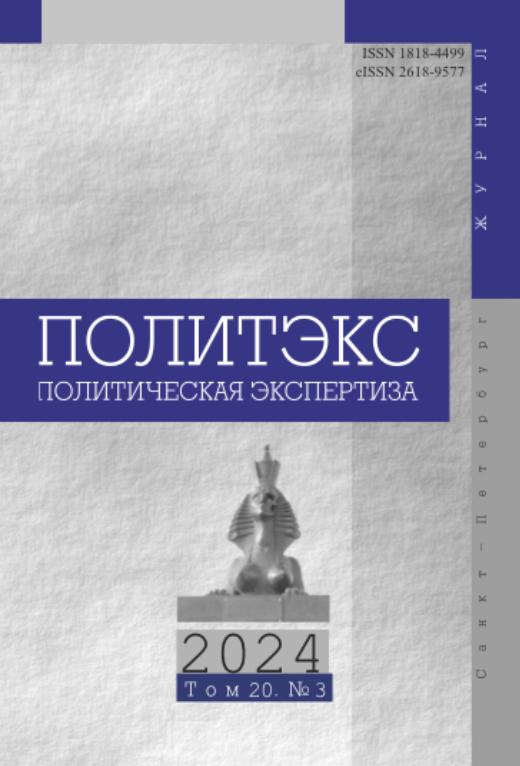THE DIGITAL STATE AND DIGITAL CITIZENSHIP IN THE INTERNET SPACE IN THE CONTEXT OF POLITICAL MYTHOLOGY
DOI:
https://doi.org/10.21638/spbu23.2024.314Abstract
The relevance of this work is connected to the transformations occurring in classical political institutions during the current period, which are driven not only by their transition to the sphere of virtual interactions but also by the development of digital technologies. This article aims to demonstrate how the institutions of the digital state and digital citizenship are reflected in political mythology. The methodological basis of this work is structuralism in the classical understanding of Claude Lévi-Strauss. The research method is critical discourse analysis. From the perspective of political mythology, two main directions of representing the digital citizen and digital citizenship on the Internet can be identified today, both of which are examined in this article. The first direction is related to social rating, which is associated with risks such as the loss of trust in citizen-state relationships and the possibility of the state’s institution maintaining its sovereignty (including digital sovereignty) with the implementation of this technology. This scenario is largely reflected in the context of virtual folklore (eschatological myth). The second direction is related to neural networks and their capabilities and threats. The dangers of spreading fake news created using this tool are emphasized, as well as issues of digital immortality. The conclusion is made that, despite the formative stage of the primary myth of the digital state, it can be asserted with a high degree of confidence that currently, the digital state and digital citizenship reflect motifs which are typical for political mythology and, as a specific example, certain narrative traditions
Keywords:
DIGITAL STATE, DIGITAL CITIZEN, DIGITAL CITIZENSHIP, POLITICAL MYTHOLOGY, FOLKLORE, POST-FOLKLORE, VIRTUAL SPACE, SOCIAL RATING, NEURAL NETWORK, TRUST, DIGITAL SOVEREIGNTY, IMAGE OF THE FUTURE
Downloads
Downloads
Published
How to Cite
Issue
Section
License
Articles of "Political Expertise: POLITEX" are open access distributed under the terms of the License Agreement with Saint Petersburg State University, which permits to the authors unrestricted distribution and self-archiving free of charge.




